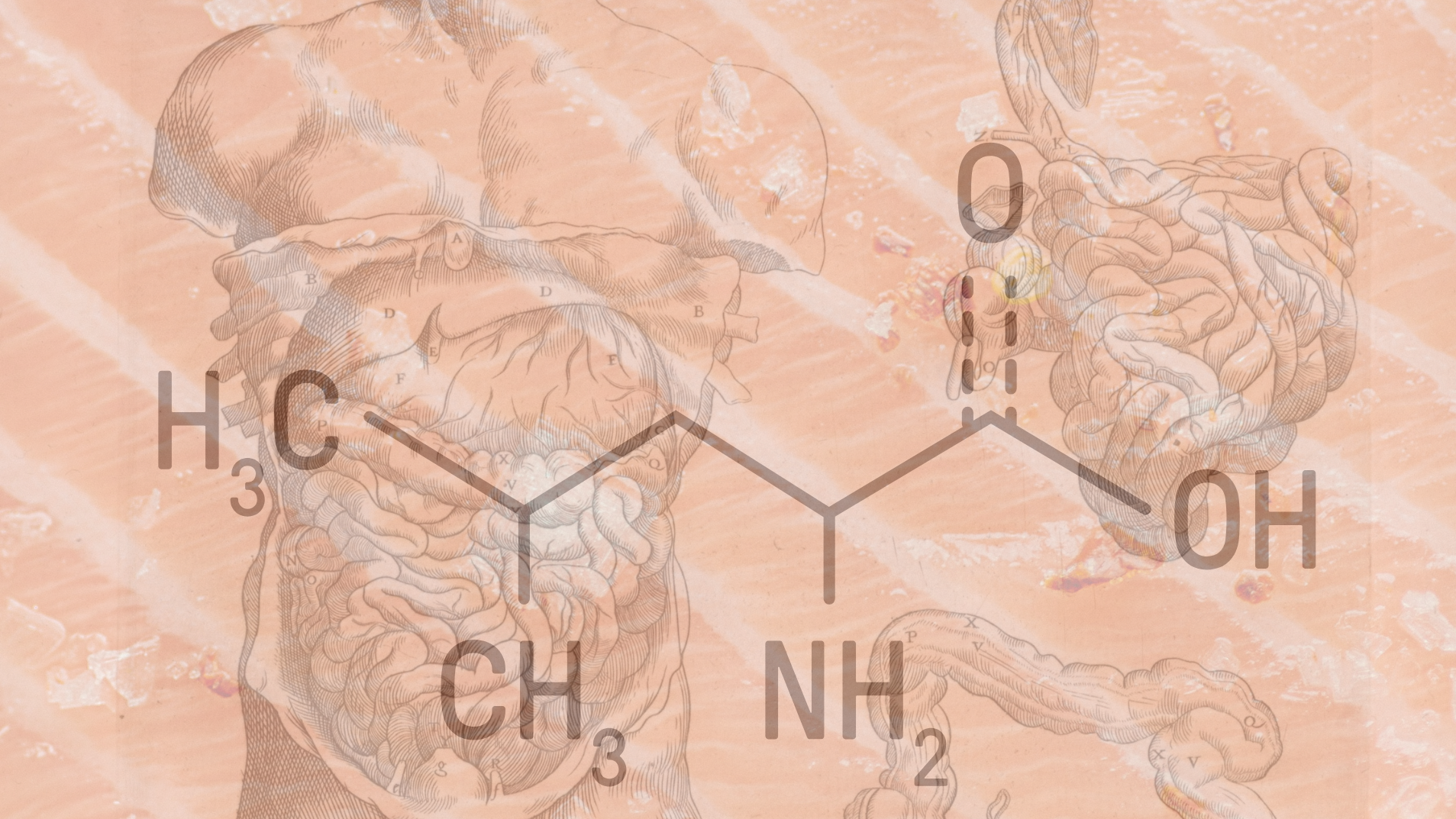Protein Digestion Steps, and the Protease Enzyme AmplifyeP24

What Happens to Protein After You Eat It? How The Protease Enzyme AmplifyeP24 Optimizes Digestion and Doubles Absorption
Protein is an essential macronutrient, vital for numerous physiological functions including tissue repair, enzyme production, and hormone synthesis. Understanding how our bodies process and utilize dietary protein can illuminate the importance of optimizing this process for better health outcomes. AmplifyeP24, a specialized protease enzyme, has been developed to enhance protein digestion and absorption. Let's explore the journey of dietary protein through the human body and how amplifyeP24 can optimize this process.
The Journey of Dietary Protein in the Human Body
1. Ingestion and Mechanical Breakdown
Protein digestion begins in the mouth, where chewing mechanically breaks food into smaller particles, increasing surface area for enzymatic activity. Saliva helps form a moist bolus for easy swallowing (Healthline).
2. Stomach Digestion (Proteolysis)
In the stomach, hydrochloric acid (HCl) creates an acidic environment (pH ~2) that denatures protein structures, unfolding them for enzymatic access. Pepsinogen is converted into pepsin, an active enzyme that initiates hydrolysis of proteins into polypeptides (Britannica).
3. Small Intestine Digestion
Polypeptides enter the duodenum, where pancreatic enzymes—trypsin, chymotrypsin, and carboxypeptidase—further break them down into smaller peptides and amino acids (Britannica).
4. Absorption by Enterocytes
Dipeptides, tripeptides, and amino acids are transported into the enterocytes (intestinal cells). The PepT1 transporter is crucial for uptake of small peptides, while individual amino acids use specialized amino acid transporters (PubMed Central).
5. Transport to the Liver
Absorbed amino acids travel through the portal vein to the liver, where they are either used for immediate functions (like energy or protein synthesis) or stored/distributed as needed (PubMed).
6. Utilization in Body Tissues
Amino acids enter tissues to support essential processes: building enzymes, neurotransmitters, muscle fibers, and immune components. They can also be converted into glucose or used for energy (NCBI).
7. Excretion of Nitrogenous Waste
Excess amino acids are deaminated, and the nitrogen is converted into urea in the liver. This urea is then excreted in urine by the kidneys, helping maintain nitrogen balance (NCBI).

How amplifyeP24 Optimizes Protein Digestion and Absorption
Precision Protease Enzyme
amplifyeP24 is an acid-activated protease modeled on the Kumamolisin family of enzymes found in acidic Japanese hot springs. It was refined using Nobel-Prize-winning research at UC Davis (UC Davis Genome Center).
Early Hydrolysis Activation
Unlike many dietary enzymes, P24 activates in the stomach’s acidic environment, not the intestine. This allows for early protein breakdown, jumpstarting the digestive process and reducing digestive burden (UC Davis Research).
Enhanced Amino Acid Bioaccessibility
By accelerating the hydrolysis of proteins into absorbable amino acids and peptides, amplifyeP24 boosts their bioaccessibility and uptake efficiency (Frontiers in Health).
Optimized Amino Acid Profile
P24 contributes to a more balanced and usable amino acid profile entering systemic circulation. This results in better cellular uptake and more efficient protein synthesis across tissues.
Physiological Benefits of amplifyeP24
-
Muscle Health: Improved amino acid delivery can enhance muscle protein synthesis and speed recovery.
-
Digestive Comfort: Early-stage digestion can decrease bloating and discomfort associated with high-protein meals.
-
Energy & Sleep: Amino acids like tryptophan support stable energy and better sleep via neurotransmitter pathways.
-
Hormonal Health: Amplifying amino acid absorption supports better hormonal resilience, especially in midlife.
-
Efficiency: Enhances the nutritional value of consumed protein without increasing intake—good for both health and sustainability.
-
Healthy Aging: Supports immune strength, cognitive clarity, and metabolic regulation across life stages, potentially contributing to quality longevity
Conclusion
Optimizing protein digestion is key to unlocking its full health benefits. Many people consume adequate protein but fail to digest, absorb, or fully utilize it efficiently due to suboptimal digestive enzyme activity.
Since protein digestion begins in the stomach, using a specialized protease enzyme like amplifyeP24 ensures that protein breakdown starts where it matters most. This can improve the availability of essential amino acids and small peptides—the true end product of protein digestion—and supports everything from muscle growth to immune function.
By enhancing our body’s ability to use protein,, amplifyeP24 bridges the gap between consumption and real nutritional impact.










